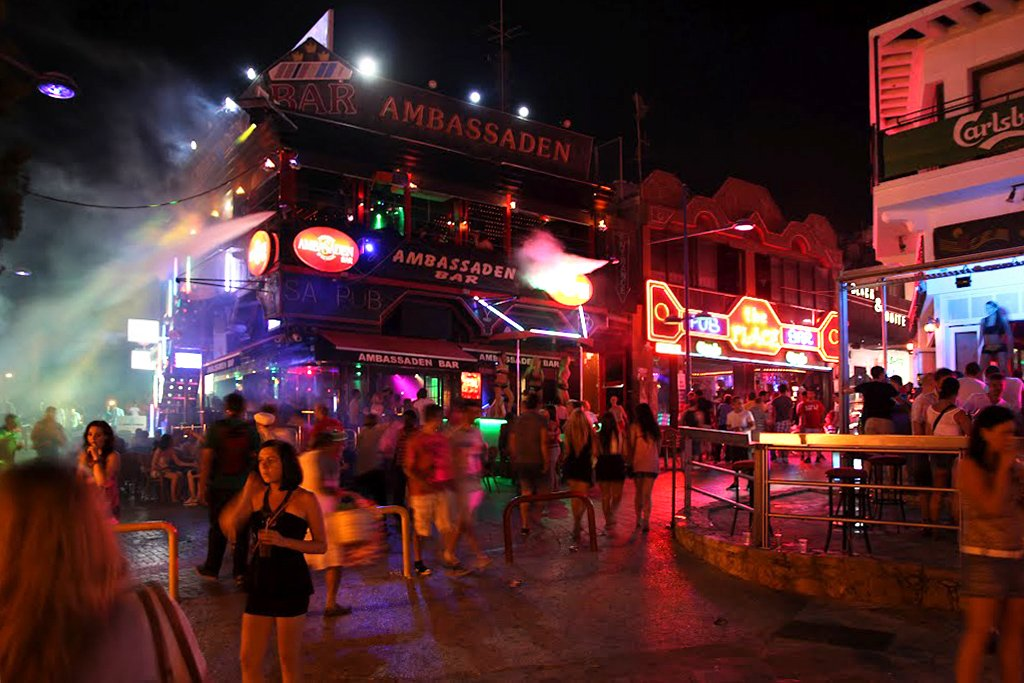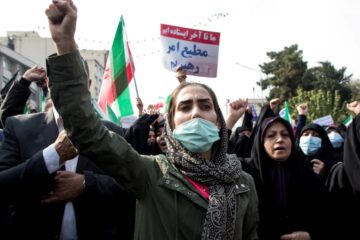On March 6th of 2025, a chilling tragedy occurred in a Cypriot nightclub. Anastasia Melega, a 23-year-old mother who had immigrated from Moldova, was found dead in the bathroom of a Gerolakkos nightclub. Her death exposed a deeply rooted issue in Cyprus’s entertainment industry: sex trafficking. The current political situation in divided Cyprus is “providing fertile ground for sex traffickers at ‘alarming levels’ in the EU member state.” Although the Republic of Cyprus has de jure sovereignty over the entire island, a substantial number of Turkish troops and residents live in the North that they have proclaimed for themselves. In fact, the current de facto population is estimated to be about 600 000 citizens. This split has created a dangerous lack of coordination among law officials on both ends, allowing traffickers to escape prosecution and granting Cyprus status as a major trafficking hub.
The 1974 Turkish invasion of Cyprus resulted in the partitioning of the island, with a United Nations Peacekeeping Force guarding the buffer zone between the two, commonly known as the ‘Green Line.’ Law enforcement officials on both sides serve the interests of their respective authorities without trusting or communicating with one another. Dual jurisdictions have made joint crime-fighting rare and increased corruption, allowing “the self-proclaimed ‘Turkish Republic of North Cyprus’ to be identified as a destination for women from Central Asia and Africa who are subjected to forced prostitution in nightclubs licensed and regulated by the Turkish Cypriot administration.” In areas like Pyla/Pile, one of the four bicommunal villages along the Green Line, the number of illegal casinos and nightclubs continues to grow.
The reporting of sex trafficking in Cyprus emerged in the mid-1970s, with the rise of the ‘artiste regime.’ Immigration and employment laws facilitated the entry of foreign women to work in cabarets and nightclubs. These women typically came from poor families of the post-socialist countries and were aware that they would end up prostituting themselves. Once they entered the industry, they fell under the constant surveillance of their employers. Their documents were confiscated and anyone refusing to comply would be punished with imposed fees. They lived in one-star hotels found above the cabarets they worked at, and usually three to four women resided in each room. The Ombudsman’s report explain that “the word ‘artiste’ in Cyprus became synonymous with ‘prostitute.’” Being stripped of any autonomy and subjected to constant surveillance meant that these women lived in a constant state of fear. The legacy of the ‘artistes’ lives on today, however, under different circumstances.
The target of sex trafficking in modern-day Cyprus is migrant workers. According to the CIA, Cyprus ranks 13th worldwide in net migration rates, with 6.3 migrants per 1000 citizens. Namely consisting of refugees, this is largely due to its location near conflict zones in the Middle East. With the majority of them arriving from countries such as Syria and Afghanistan, these individuals often seek protection from conflict, persecution, and human rights violations. These vulnerable migrant groups arrive with the goal of seeking an improved quality of life and are met with promises of well-paid jobs, help with obtaining their visas, and safety. As it happens, one of the most common ways traffickers lure their victims is through these false job promises. Traffickers are often external recruiters who paint a sumptuous picture of a job opportunity offering substantial wages for relatively easy labor. The International Labour Organization explains how “third-party recruiters, often operating unlawfully or semi-lawfully, may be the only source of employment information available to migrants.” The Cypriot nightlife industry parallels this. Nightclub owners in the occupied North, often operating their establishments as illegal brothels, entice the susceptible women of these groups to become ‘hostesses’ or ‘bartenders.’ Then, the trafficking process gradually unveils itself as women are eventually “forced to work under duress, with their passports confiscated and ‘contracts’ signed under pressure.” With no documentation, victims are unable to travel or access legal protections and move across the South Cyprus border.
The American Military University conducted an interview with a humanitarian worker living and working in anti-trafficking in Northern Cyprus. She noted that shortly after women are recruited under these ‘barmaids’ and ‘hostess’ titles, “they are informed that they will be forced to perform commercial sex acts, not wait tables.” Additionally, the American Military University reports that trafficking is not only known but allegedly facilitated by high-level officials, including some members of Parliament.
Although the nation does have extensive human trafficking legislation, the current geopolitical situation prevents it from being fully effective. In April 2014, Law 60(I) was ratified, officially prohibiting all forms of human trafficking entirely and outlining the legal framework regarding its prevention and its combating. The U.S. State Department’s Trafficking in Persons (TIP) Report of 2017 ranked Cyprus as tier 2, meaning it did not fully meet the minimum standards for the elimination of trafficking but that it was making efforts to do so. Consequently, Law 60(I) was amended in 2019 to strengthen the prevention and prosecution framework, namely raising the penalty for human trafficking felonies to up to 25 years. The issue is that both Law 60 and the TIP report do not formally include the breakaway Turkish Republic of Northern Cyprus, as the report adds that the area would likely be in tier 3, along with countries with some of the most severe trafficking records, such as Afghanistan and North Korea.
Melega’s story is the most recent, but it is by far not the only one. In 2001, Oxana Rantseva was found dead after falling from a fifth-floor apartment in Limassol. She had reportedly been trafficked for sexual exploitation. Famously known as the Rantsev v. Cyprus and Russia case, no one was found guilty. Rantseva’s father took to court with complaints that the Cypriot police had not done anything to protect his daughter from trafficking while she was alive or enough to prosecute those responsible for her death. Previously, the European Court of Human Rights ruled that human trafficking falls within the scope of Article 4 of the Court’s European Charter of Human Rights: “no one shall be required to perform forced or compulsory labour.” The Court concluded that human trafficking falls within this, and that Cyprus failed their positive obligations to protect Rantseva. This phenomenon is pervasive in the nation, as many victims’ deaths go unreported and unprosecuted. Often, the police officers in the North are themselves involved with sex trafficking rings, as “these girls are subject to rape by both night club owners and ‘police.’”
Anastasia Melega’s tragic death is not an isolated incident but rather a haunting reflection of the deeply rooted, systemic failures in Cyprus—where geopolitical division, corruption, and inadequate enforcement continue to allow the exploitation of vulnerable women to flourish in the shadows.

Edited by Kirit Ghumman and Norah Nehme.




